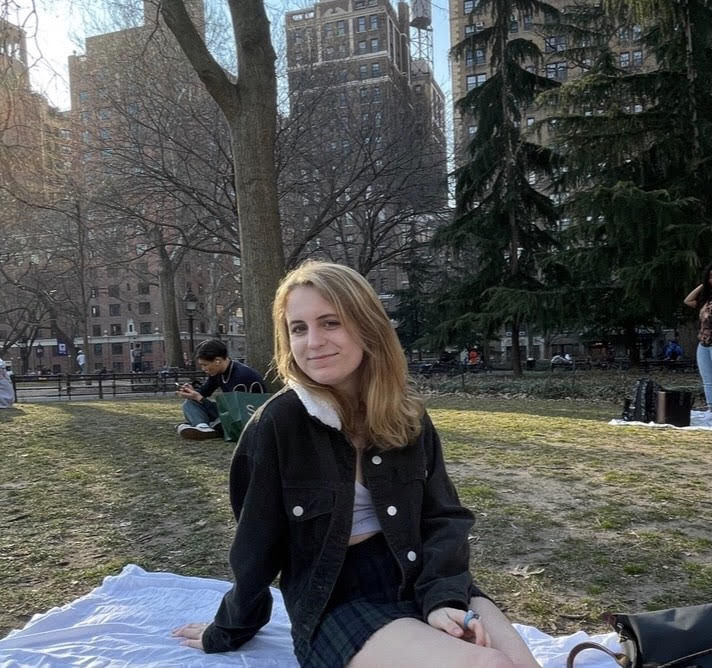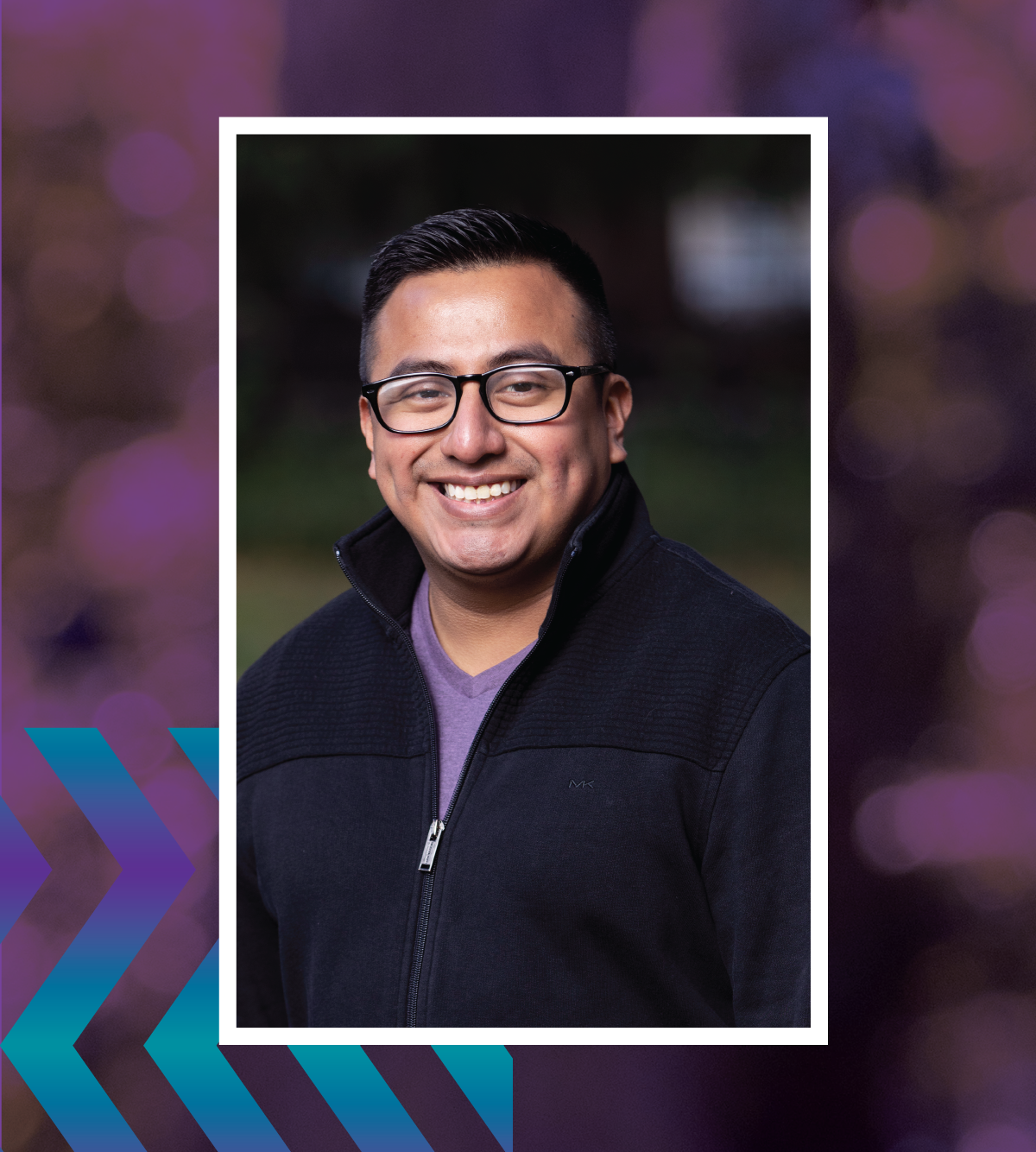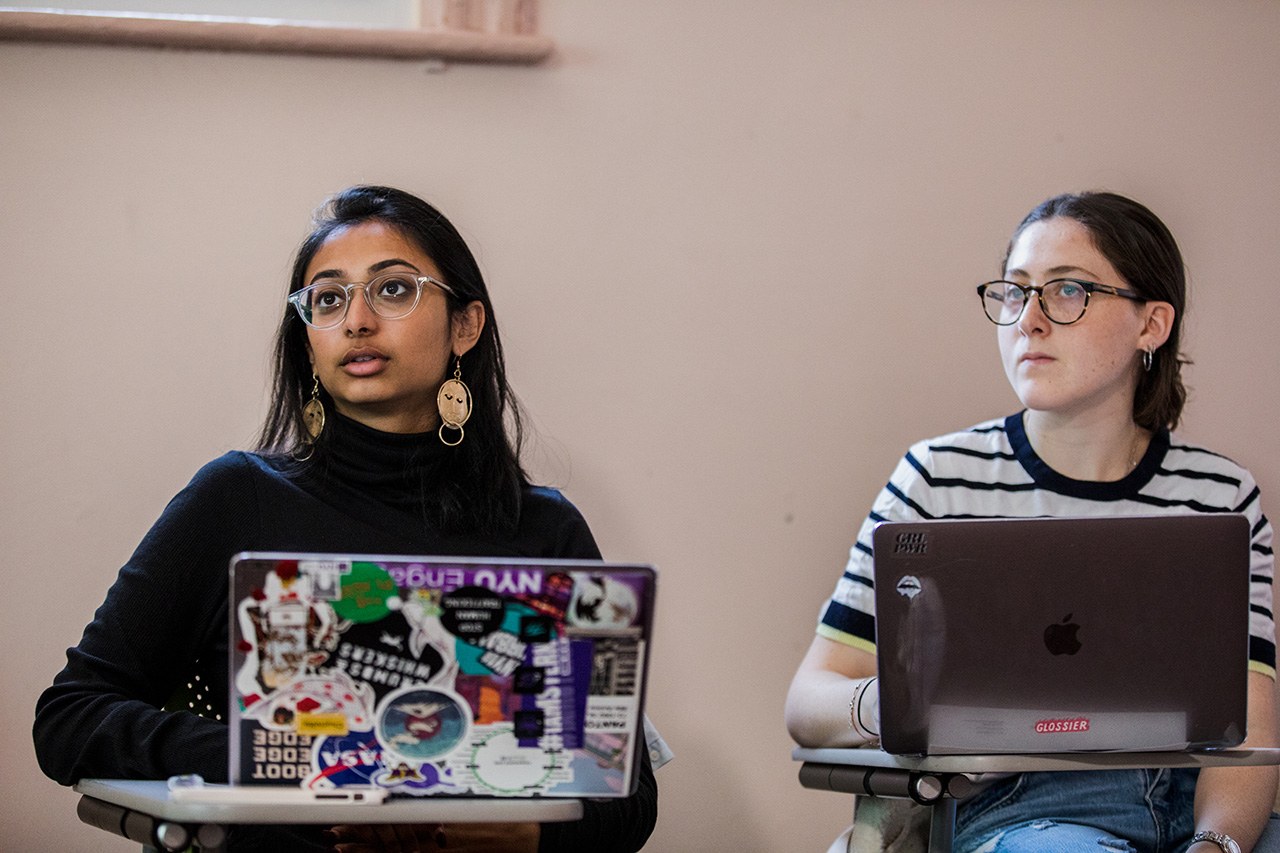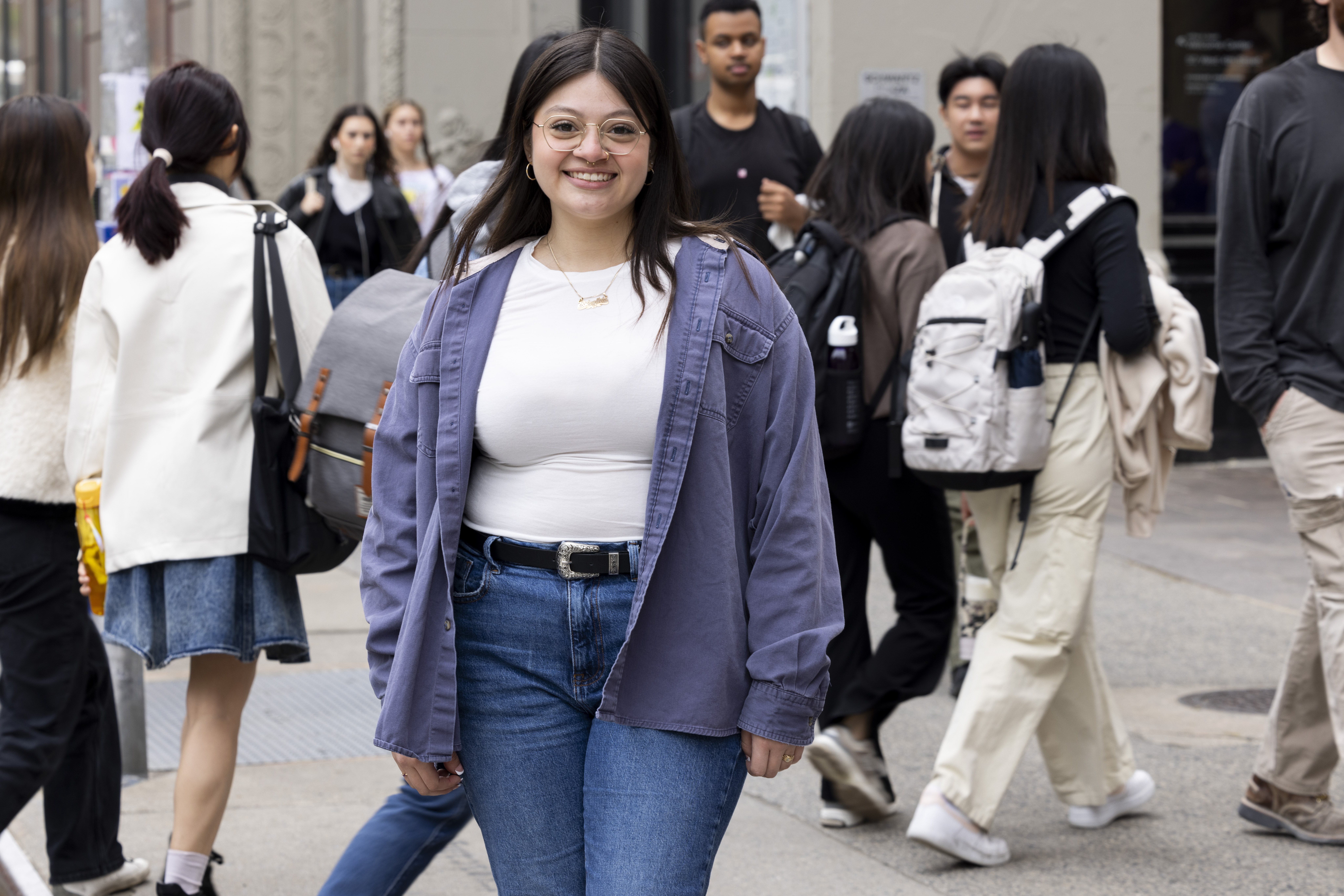Published June 20, 2024
What Even Is Social Work? Demystifying NYU’s Smallest Undergraduate Program

NYU Admissions Ambassadors representing the Silver School of Social Work at the October Open House.
The TL;DR
The Silver School of Social Work, founded in 1960, hosts NYU’s smallest undergraduate program. Its main building is a cozy brick town house that was once the home of artist Edward Hopper. Though it is unassuming from the outside, the building houses dozens of classrooms, offices, a parlor, and a student lounge. NYU Silver tends to fly under the radar because of its small size. Still, the students are some of the most dedicated, passionate, and interesting people you’ll meet here.
Social work students are problem-solvers, critical thinkers, and hard workers. What’s more, they are prepared to tackle challenges and handle nuanced discussions—inside and outside of the classroom.
—Holly Kase
An Undergraduate Degree from Silver
An undergraduate degree from Silver prepares students to work in the social work field in any way they see fit. Some graduates aspire to open a private practice. Others go on to work in government and policy or in communities. The Social Work major explicitly encourages students to go into the world with a strong sense of social justice and a foundation of knowledge. Social work students are problem-solvers, critical thinkers, and hard workers. What’s more, they are prepared to tackle challenges and handle nuanced discussions—inside and outside of the classroom.
As a recent graduate with a double major in Social Work and Journalism, I’m forever grateful for the knowledge and values I gained during my time at NYU Silver. I will take these with me as I move into the working world.

Social Work Curriculum
The Social Work major is made up of a few components: a liberal arts core, social work–specific classes, and unrestricted electives.
Liberal Arts Core
The liberal arts core for social work includes coursework in writing, sociology, psychology, and even a biology class tailored specifically to social work. These classes are intended to provide students with a good foundation for future studies on more focused topics. As an added bonus, NYU’s study away sites offer many of these courses. Social and behavioral science and humanities courses give students much more freedom to choose what they’re interested in. Students are encouraged to explore classes outside of Silver, too. Social and behavioral science credits can come from a range of subjects, from economics and politics to gender and metropolitan studies. Humanities classes encompass religious studies, philosophy, and even drama. When I was studying away at NYU Prague, I took a politics class and a media seminar to fulfill my social science requirements. I also took an architecture class to fulfill a humanities requirement.
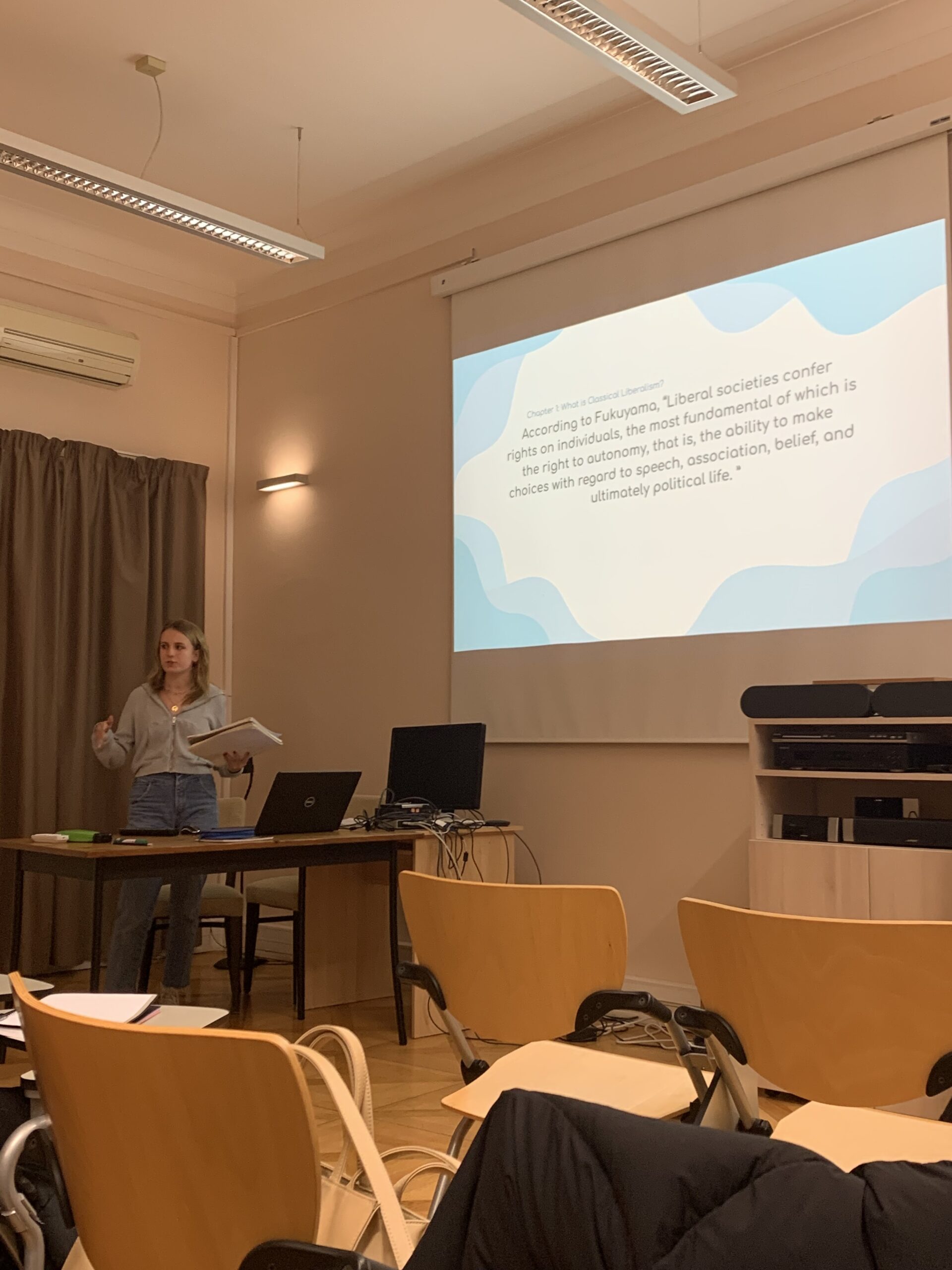
Social Work Core
Core classes for Social Work majors include Human Behavior in the Social Environment; Social Work Research; Social Welfare Agencies and Organizations; Diversity, Racism, Oppression and Privilege; and Social Welfare Programs and Policies.
Social work electives are far more flexible. These elective credits are built into your curriculum, so you have space to explore all that the social work department offers. During my first semester at NYU, I took Love and Relationships. A couples therapist teaches the class, which explores all of the different ways we express and receive love. Other options include Global Justice and Peacemaking; Social Deviance and Taboos; and Social Justice, Advocacy and Social Media.
Likewise, students who are interested in going out into the surrounding community can take service-learning classes. They work with local populations including people affected by Alzheimer’s disease, middle and high schoolers, and immigrant youth. Furthermore, they explore a broad range of topics individuals encounter every day, like spirituality or food insecurity, and they work with those individuals as a part of their coursework.
Unrestricted Electives
Unrestricted electives are yours to choose! Like many of my peers, I opted to put these credits toward a second major. In my case, this meant taking journalism classes. But many social work students opt for the dual Global Public Health and Social Work major. Others pick up a minor. Child and Adolescent Mental Health Studies is a popular minor amongst social work students due to its thought-provoking classes. Course options include Mindfulness and Mental Health; The Science of Happiness; and Morality in Childhood. Some Social Work majors use their elective slot to explore topics they’re interested in, like art history, ceramics, food studies, or even metalworking.
The Practicum Experience

The practicum experience is a large part of what makes the Social Work major unique! Essentially, it’s a required internship built into your class schedule. In your junior year, you will take a class designed to explore the many facets of the social work profession. You’ll explore policy, clinical work, community aid, or even school social work. Then, during your senior year, you are matched with a social work “placement.” There, you’ll spend approximately two days a week getting real-world experience in the field, supervised by a social worker.
I worked in two vastly different placements. First, I interned for a middle school program in Queens aiming to address chronic absenteeism in students. Then I interned at a congressional office in New York City’s Financial District. The first placement allowed me to work one-on-one with students and create tailored session plans for them. My fellow interns and I got to know the students and their families. I integrated into a new community with the school faculty and staff. I also had weekly check-in meetings with the school social worker.

A Range of Opportunities
My second placement was in the district office of a congressperson. Despite my initial confusion as to how this could relate to social work, I quickly learned that a lot of government work is casework. My supervisor, who has a master’s degree in Social Work, taught me how to help constituents navigate issues with the federal government. I got constituents new passports, wrote letters of support to a number of international embassies, worked with Medicare and Social Security, and interacted with constituents daily on the phone and over email. I also went to community events, sat in on all-staff meetings, and attended cool events in our congressional district. Through my office, I attended the Whitney Biennial premiere and visited the New York Stock Exchange for an event on financial literacy!
Each placement is different, but every single one offers its own opportunities. My second placement opened me up to the idea of working in government and sparked a newfound interest in politics and policy. I also made new friends and more than a few new memories on the way! My peers worked in research labs, hospitals, after-school programs, community centers, and even public libraries.

The Benefits
Flexibility
NYU’s social work program encompasses a wide range of study and teaches you how to perceive the bigger picture of an individual or a community. You learn to work directly with people and leave college with a strong foundation of knowledge. This is why you can do so many things with a social work degree! I have classmates planning to go to medical or law school, with some continuing on to get a social work master’s degree and license. Others will conduct research or open a private therapy practice one day.
Real-World Experience
The social work curriculum is designed to prepare students for the professional social work world. While many of my classmates in other majors seemed to take on coursework rooted more in theory, I discussed and even role-played real-life scenarios. My professors taught us about different types of therapy and challenged us to put that knowledge into practice.
Beyond the classroom, the built-in practicum requirement allowed me to build up my résumé and try out different types of workplaces. I learned a lot about the kind of environment I want to work in after graduation. This knowledge has dramatically helped me shape my job search. Similarly, service-learning classes are a great way for future social workers to learn about the populations they want to work with. NYU’s Social Work major is also an “advanced standing program.” Therefore, if graduates choose to get their master’s degree in Social Work, it will take them one year instead of two.
Community
The Silver School offers NYU’s smallest undergraduate program. Each year, the graduating class is typically between 40 to 50 students. This means the classes can be really small, and the professors expect a high level of engagement and participation. Small classes give students the chance to ask questions and partake in meaningful discussions. While some classes begin with lectures as a foundation for learning, they often segue into conversations or class-wide exercises.
The small class size also means that students have an opportunity to get to know each other. As a recently graduated senior, I can confidently say I had a class with nearly all of my fellow graduates. I know everyone’s name, whether I met them through our first-year seminar or in the halls after class. It feels like I have a small school to come home to within the larger community of NYU. I’m incredibly grateful for that sense of comfort and community.

Clubs and Organizations
Just like any other NYU school, the Silver School of Social Work has its own network of clubs. Students create and lead these organizations. I had the chance to participate in Silver’s student government during my senior year as a publicity chair. Student government members attended weekly meetings. We chatted about what was going on at Silver and NYU. I also created promotional materials and social media content. Fun student government events this year included a barbecue and bike ride on Governors Island as well as a boat cruise. We also took a trip to a rage room, where we were free to break things in a safe environment.
What’s more, I competed for Team Silver at NYU’s annual All-University Games. This is a yearly event where members of each NYU school compete in fun games like basketball, cup stacking, Ping-Pong, and even Dance Dance Revolution.

Like much of college, the Social Work major is what you make of it. Many of my classmates will become social workers. Others will become doctors, lawyers, researchers, and professionals in a wide variety of industries. I plan to go into journalism, but I can say with confidence that the skills I learned from my Social Work major will stick with me. I know they will serve me well as I venture into life beyond NYU.

